Five great musical gadgets – from a reissued Moog synth to a folding guitar
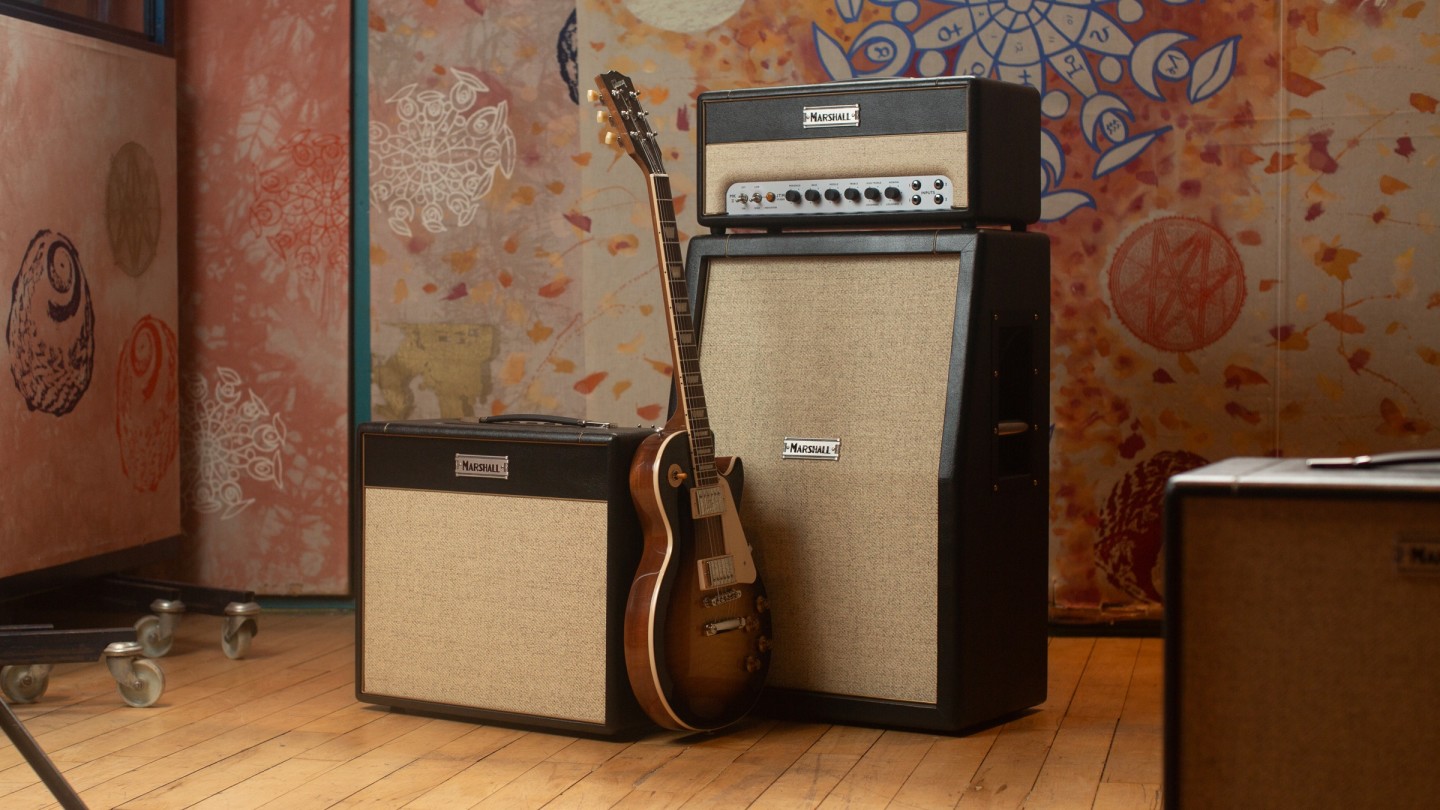
Roula Khalaf, Editor of the FT, selects her favourite stories in this weekly newsletter.
The vogue for Moog
Up until 1970, synthesisers resembled switchboards at the local telephone exchange and it was a nightmare to get them into the back of your car. In an attempt to widen their appeal and help save an ailing company, engineers at Moog (which rhymes with “rogue”, counterintuitively) came up with the portable Model D, a pioneering synth that binned the gigantic panels of sockets and dangling cables. In their place: a neat array of clearly labelled knobs, switches and a 44-note keyboard. Its convenience made it a hit with some notable synth wizards (Stevie Wonder, Rick Wakeman, Chick Corea) and its rich, punchy sound can be heard across countless records from the ’70s, ’80s and beyond.
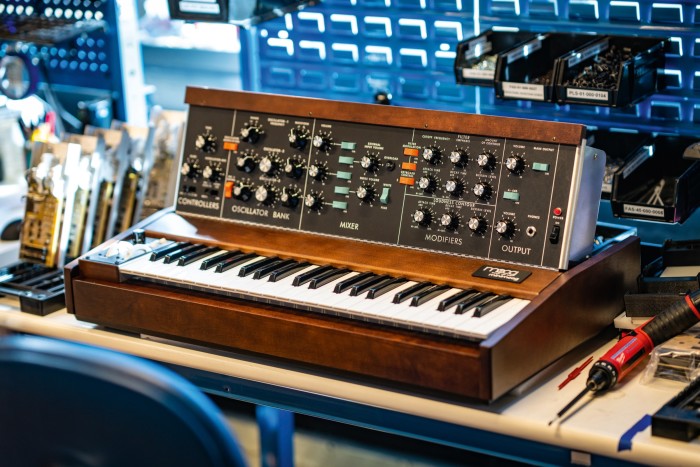
It may have been portable by the standards of the day, but the first thing that strikes you about this reissue is its heft and its presence, with a Fatar keyboard (rhymes with “catarrh”, counterintuitively) set into a chunky Appalachian cherry cabinet. Anyone who has played around with Minimoog software on computers will be familiar with its interface, but the hands-on experience is something else. As it’s a monophonic keyboard (ie, one note sounds at a time), your natural instinct is to play with one hand and control the timbre with the other, and unlike its computerised equivalent it feels like a real, expressive instrument (because it is). The addition of sensitive velocity and aftertouch (ie, the manner in which you press the keys) opens up even more possibilities.
The sound? Moog has worked hard to preserve the sound sources and fundamentals that made the original so beloved of musicians and record producers. If you lined it up next to a model from the early ’70s, you might hear a slight difference, but that will have more to do with 50 years of degrading electronics and build-up of dust than anything else. The oscillators have all the wild character you can hear on tracks like “Autobahn” by Kraftwerk and “Cars” by Gary Numan, and anyone daring to suggest that synthesised sound is inherently sterile will be forced to eat their words. Minimoog Model D, $4,999
Calling all DJs
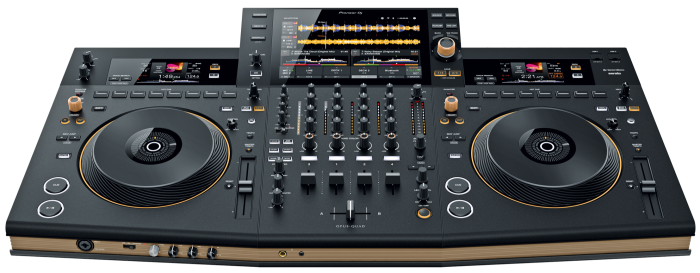
Pioneer DJ Opus Quad, £2,899
The sanctity of the DJ’s workflow has seen many of the design elements of Pioneer DJ’s groundbreaking CDJ players carefully preserved since the ’90s. But this standalone unit rewrites some rules, smooths out ergonomics and introduces new features. No fiddling with laptops; responsive, tablet-like screens provide all the essential information, including key, BPM (beats per minute) and cue points. Four simultaneous channels give huge flexibility, while intuitive effects open up a ton of possibilities without you having to worry about clashing beats or mistimed drops. Also, it looks good – the flat, utilitarian desk has been given a five-degree tilt, and LEDs are the colour you want them to be. Pioneer DJ Opus Quad, £2,899
A genius travel guitar
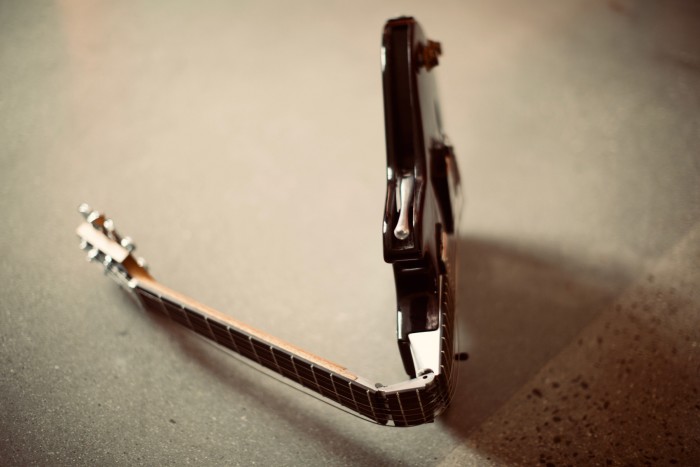
There are many grim stories to be told about the inherent fragility of the electric guitar. If they’re mishandled, they can break, and they enter the hold of an aircraft at their peril. The P90 Solo, however, is engineered to fold in half at the neck, slot into a backpack and be safely stowed under a seat. That it works at all is extraordinary, but the fact that it’s still pretty much in tune after unfolding and locking it back into place is mind-blowing. Crafted by luthiers in Nashville and incorporating a Seymour Duncan P90 pickup, it’s a joy to play and a delight to show off. Satisfied customers include Andy Sneap (Judas Priest) and Shawn McQuiller (Kool & The Gang), so it’s pretty versatile, too. Ciari Ascender P90 Solo, $1,599
Headphones for pros

Any new pair of cans coming onto the market has to try and make a splash, but the characteristics valued by musicians are never going to jump off the page and grab you. Sennheiser’s 600 range has, over the years, earned itself a heap of measured, restrained praise (“neutral”, “flat”, “reliable”), and while that might sound unexciting, verging on dull, these are precisely the qualities that have made them so popular. The build of the 660S2 is largely the same as its predecessors, and they’re firm but comfortable to wear. In terms of sound, they boast “enhanced sub-bass tuning” but we’re talking a subtle refinement here; they’re still magnificent reference headphones, doing diligent, industrious work. Sennheiser HD 660S2, £499
Marshall goes back to basics
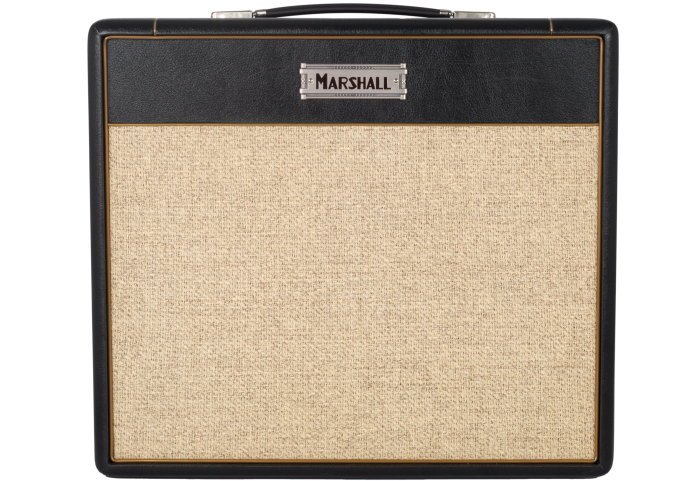
Marshall Studio JTM ST20C, £1,279
The jet-black Marshall stack with its cursive logo and shimmering golden control panel provides one of the defining images of rock. Before that, however, came the JTM, first produced in 1962 in Jim Marshall’s workshop in Hanwell, London, when the logo was more boxy and the speaker cover a muted fawn. This tribute comes with precise period detail and a beautiful vintage sound; no high-gain distortion – just a powerful, clear-ringing tone via four different inputs, depending on how powerful your guitar pickups are or how bright you’d like the sound. There’s also a handy switch between 20W and 5W output for when you want to bring your stage sound home and avoid annoying the household. Marshall Studio JTM ST20C, £1,279
Comments